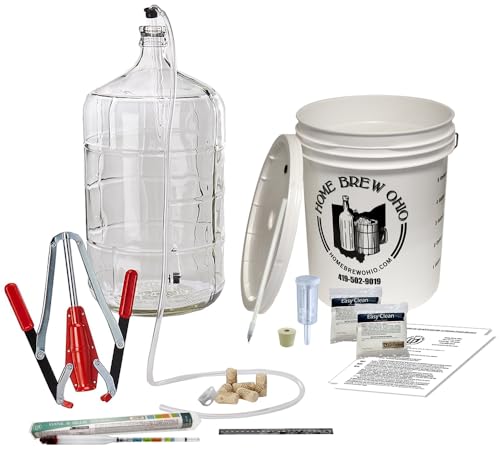Hi all -
I'm a beginner, but this seemed like the better place for my questions. My mother in law gave me 50lbs of italian plums from her harvest this year. So, after halving and freezing them in 3lb vacuum sealed baggies, I decided to try my hand at wine making (Note - I also have 20lbs of blackberries in my freezer right now waiting their turn).
I tend to prefer wines without lots of chemicals. I also don't usually do sweet wines, so this is really a leap of faith for me! I found an older recipe for a Natural Plum Wine and jumped in back on September 16th!
So - recipe and steps and dates:
15lbs washed/halved/frozen plums
9lbs sugar
3 gallons water
3 tsps citric acid
3 packages of wine yeast (I think I used LALVIN D-47 YEAST)
Wash cut & freeze fruit.
On September 16, 2013 - placed defrosted fruit in fermentation bucket. Poured the boiling water over. Covered bucket and left for 4 days in dark place.
Stir twice daily.
After 4 days - strain.
Make a sugar syrup by cooking sugar with some of the fruit juice. Pour sugar syrup into strained fruit. Stir vigorously until well incorporated. Add yeast. Stir and cover.
Stir regularly for 5 days, then pour into fermentation bottle (September 26). Fit airlock. Leave to finish fermenting (when bubbles have ceased appearing).
When ceased fermenting, rack wine into a clean jar (January 6) and place in a cooler environment and leave. Rack again if necessary and leave until wine is stable and then bottle.
So - my question is - my wine is still really cloudy. I just took a look at it, and it's got about 3/4" of sediment at the bottom of the demijohn. I'd like to bottle and use my demijohn to try making some apple cider (I bought a kit that looked like fun), but I'm not sure it's time to do that. Should I leave it be another few months and see if it settles out?
I'm debating if I should go find another demijohn so I can make other fun things simultaneously or if I should proceed to the bottling stage and just set the bottles somewhere dark?
I read that if I leave it be longer, it won't be as sweet. So - advice? Do I continue to be super patient and leave it alone another few months? Or proceed to bottling?
Thanks!
Jen
I'm a beginner, but this seemed like the better place for my questions. My mother in law gave me 50lbs of italian plums from her harvest this year. So, after halving and freezing them in 3lb vacuum sealed baggies, I decided to try my hand at wine making (Note - I also have 20lbs of blackberries in my freezer right now waiting their turn).
I tend to prefer wines without lots of chemicals. I also don't usually do sweet wines, so this is really a leap of faith for me! I found an older recipe for a Natural Plum Wine and jumped in back on September 16th!
So - recipe and steps and dates:
15lbs washed/halved/frozen plums
9lbs sugar
3 gallons water
3 tsps citric acid
3 packages of wine yeast (I think I used LALVIN D-47 YEAST)
Wash cut & freeze fruit.
On September 16, 2013 - placed defrosted fruit in fermentation bucket. Poured the boiling water over. Covered bucket and left for 4 days in dark place.
Stir twice daily.
After 4 days - strain.
Make a sugar syrup by cooking sugar with some of the fruit juice. Pour sugar syrup into strained fruit. Stir vigorously until well incorporated. Add yeast. Stir and cover.
Stir regularly for 5 days, then pour into fermentation bottle (September 26). Fit airlock. Leave to finish fermenting (when bubbles have ceased appearing).
When ceased fermenting, rack wine into a clean jar (January 6) and place in a cooler environment and leave. Rack again if necessary and leave until wine is stable and then bottle.
So - my question is - my wine is still really cloudy. I just took a look at it, and it's got about 3/4" of sediment at the bottom of the demijohn. I'd like to bottle and use my demijohn to try making some apple cider (I bought a kit that looked like fun), but I'm not sure it's time to do that. Should I leave it be another few months and see if it settles out?
I'm debating if I should go find another demijohn so I can make other fun things simultaneously or if I should proceed to the bottling stage and just set the bottles somewhere dark?
I read that if I leave it be longer, it won't be as sweet. So - advice? Do I continue to be super patient and leave it alone another few months? Or proceed to bottling?
Thanks!
Jen



















































